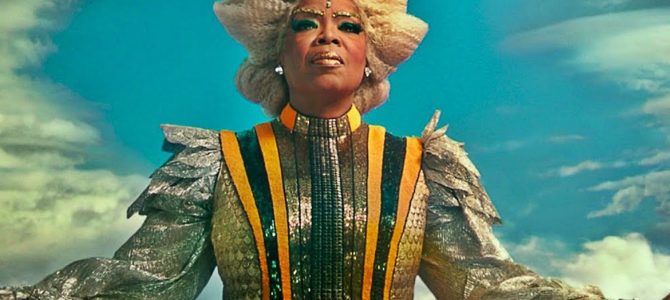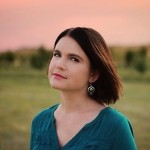
The upcoming release of “A Wrinkle in Time” is generating some controversy and divisive reviews, especially after a recent interview with the screenwriter, Jennifer Lee. If you’re unfamiliar with Lee, she’s best known as the writer of “Frozen,” the children’s musical about running from your problems and hiding in ice castles. “A Wrinkle in Time” is the best known work of Madeleine L’Engle, and the book is one of the best loved and most popular children’s books of all time.
It’s a book with deep Christian themes, in the same way that C.S. Lewis wrote “The Chronicles of Narnia” with Christianity in mind. It’s been called unfilmable in the past, and a previous attempt at adapting it to the screen led to a largely unsatisfying and disappointing animated film. The previews of the film look visually stunning, but hint at a lack of the important guiding morality of the book, and the words of Lee only encourage this concern. If people want a beautiful and compelling moral story without Christianity they should write their own, rather than taking a Christian themed book, written by a Christian, and stripping it of its theology.
There are fans of books who watch movies expecting that at the very least the major details will be correct. They want to see the characterizations, the plot points, the very elements that uniquely make the story sing. These are the fans who, when a movie veers off, may avoid the whole franchise, because it’s different than how they’ve pictured beloved characters in their head, or because the details that were shifted and altered to better fit the constraints of the screen or the desires of the screenwriter or director make it no longer resemble the story that they’ve read and reread.
Are ideas and stories, books written by other people, just a jumping off point for a story that is adjacent to the story that Hollywood wants to tell? This isn’t a critique reserved specifically for “A Wrinkle in Time.” There are incredibly detailed lists for other franchises, like “Harry Potter” or “The Lord of the Rings” (and “The Hobbit”), where fans and even scholars dissect why and what the movies left out and changed. When a movie is written and created based on a story contained in a book, it’s a fair assumption that the story will resemble the book.
There are also fans who are willing to tolerate and overlook changes as long as the essence of the story is preserved. They’ll love the movie as much as the book, as long the feelings and the best and most vital parts of a story are carried into the movie. The concerns coming out about “A Wrinkle in Time” are that it very well might alienate not only the fans who crave and seek story telling perfection, but also those who desire the thematic and structural elements of a story to be left alone.
If a movie can’t tell a story that is lovable and recognizable to the people who have cherished and dissected the story in book form, it’s entirely possible that it’s strayed too far. These qualms have nothing to do with the cast, which looks entirely fantastic and talented, but rather with the decision to strip away the deeply interwoven Christianity of the story and leave behind instead a generic universalist moralism.
Since this movie isn’t out for the public yet, we can only analyze what the buzz and interviews suggest, such as the decision to omit the overtly Christian emphasis that L’Engle chose to use when writing the story. When asked about this, Lee explained:
What I looked at, one of the reasons Madeleine L’Engle — as I’ve been told; I never got to meet her — but one of the reasons it had that strong Christian element to it wasn’t just because she was Christian, but because she was frustrated with things that needed to be said to her in the world and she wasn’t finding a way to say it and she wanted to stay true to her faith.
And I respect that, and I understand those feelings of things you want to say in the world that need to be said that are out there. In a good way, I think there are a lot of elements of what she wrote that we have progressed on as a society, and we can move onto the other elements. In a sad way, some of the other elements are more important right now and bigger — sort of this fight of light against darkness. It’s a universal thing and timeless and seems to be a battle that has to keep being had.
There’s a lot to unpack here. First, Lee seems to feel that the Christian faith of L’Engle is not a big deal, and that it’s something that should be moved on from. When Lee says that some of the other elements in the story are more important and bigger right now, and then lists the fight of light against darkness, she does so with no realization or understanding that Christianity is very much about that exact fight. Christianity is explicitly and timelessly about the battle between good and evil, the fight between the light and the dark.
It’s a little astonishing to see Lee in one breath say that L’Engle’s Christian faith, which was a vital and formative part of her life, that she used it to express her ideas of frustration about how the world treats people in her novels was just an element, but then in the next explain the the story is actually about good vs. evil without seeing the disconnect. A story by a Christian author who made deliberate choices to incorporate Christian themes in a story about good vs. evil is a story with Christianity as a central theme, not just some minor element to be shrugged off.
The Christianity of “A Wrinkle in Time” is not implied or subtle, but rather masterfully and beautifully interwoven throughout the whole story. It’s a shame if the motivations and understandings of the characters are stripped from them. At the climax of the book, when the main character, Meg, is discouraged and needs hope, it is the Bible that is quoted to her: “The foolishness of God is wiser than men; and the weakness of God is stronger than men.”
It’s a passage from 1 Corinthians 1: “For ye see your calling, brethren, how that not many wise men after the flesh, not many mighty, not many noble, are called, but God hath chosen the foolish things of the world to confound the wise; and God hath chosen the weak things of the world to confound the things which are mighty. And the base things of the world, and the things which are despised, hath God chosen, yea, and things which are not, to bring to nought that are.”
The three women who act as guides and teachers in the story, played by Oprah Winfrey, Reese Witherspoon and Mindy Kaling, are revealed in the book to be angels, and messengers from God. “Angels!” Calvin shouted suddenly from across the table. “Guardian angels!” There was a moment’s silence, and he shouted again, his face tense with concentration, “Messengers! Messengers of God!”
They’re more than just random powerful supernatural beings, sent to guide the children in the film to the end of the movie. Rather, in the book, it’s clear that they’re sent with a higher purpose. They’re there to remind the children that in everything God is at work, even in the face of incredible evil. Light against dark. There’s no generic lens here, but rather a specific and real Christian one.
In contrast, Lee goes on to say that: “Her intention was looking at the ordinary real hero in an extraordinary situation. The power of love in this world, and we stayed very true to that. And her lens through it was Christianity and everyone has a different lens in. And that’s what inclusiveness is to me in this film, is really looking at all of us have a role to play in this no matter where we come from or what we look like.”
Years after writing “A Wrinkle in Time,” L’Engle wrote another book, “Walking on Water: Reflections on Faith and Art.” It’s a book on what it means not just to be a Christian, but to be a Christian who is an artist, and who makes Christian art. It’s clear in reading this book that L’Engle’s view of her works is that they are Christian works, meant to talk about her God: “But thinking about it may open new questions, new insights.”
“And as I listen to the silence, I learn that my feelings about art and my feelings about the Creator of the Universe are inseparable,” she writes. “To try to talk about art and about Christianity is for me one and the same thing, and it means attempting to share the meaning of my life, what gives it, for me, its tragedy and its glory.”
Removing Christianity from L’Engle’s work removes her faith. It removes what she intentionally wrote into the story, because Christianity didn’t land in “A Wrinkle in Time” by accident. If this movie has sanitized religion from its lines, this is a loss. For such a fantastic story to have been potentially robbed of the very meaning behind all of it is sad, and a terrible disappointment. This isn’t about costumes or some important lines. It would be to miss the very soul of the story.









